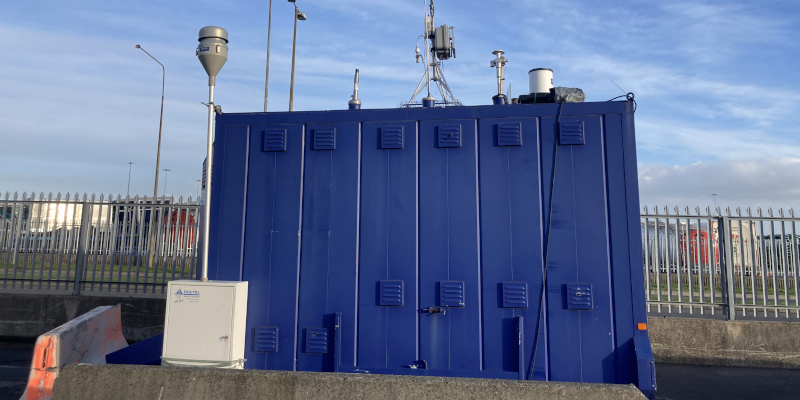In This Section
UCC School of Chemistry researchers secure funding to investigate sources of air pollution in Irish towns

With recently announced project funding form the Environmental Protection Agency, the Centre for Research into Atmospheric Chemistry (CRAC) at the School of Chemistry and the Environmental Research institute, UCC, will work with colleagues at the University of Galway to investigate sources of air pollution in Irish towns.
Atmospheric aerosol particles, also known as particulate matter (PM), together with other air pollutants, are identified as the single biggest environmental health risk by the World Health Organisation and cause over 7 million premature deaths per year worldwide. Similarly, in Ireland, air pollution is responsible for around 1,300 premature deaths yearly with PM being the main pollutant of concern. PM can originate from man-made sources such as domestic heating, traffic, agriculture, industry, and natural sources, like pollen, sea salt or dust.
The project will provide high time resolution measurements of PM2.5 chemical composition, combined with comprehensive analysis and source apportionment modelling, to identify and quantify the major sources contributing to air quality in two Irish towns, where PM is known to be elevated. Advanced, stateof-the-art measurement techniques and source apportionment capabilities will be utilised to quantify contributions from various sources, including residential heating (separated for different fuels), vehicle exhaust emissions, non-tailpipe emissions, agriculture and naturally occurring PM2.5.
The impact of different emission sources on air quality will be evaluated, as well as any changes observed over the last 10-15 years, especially in relation to the fuels used for home heating. Based on this analysis, a range of options for mitigation of PM emissions will be proposed and provide a scientific basis for underpinning the successful implementation of the National Clean Air Strategy.
Recommendations on actions to reduce PM2.5 to achieve forthcoming levels included in the recast of the CAFE Directive and recommendations on further actions that would correspond to the WHO air quality guideline values will be provided.
The team will also engage with schools and local authorities to implement a network of low-cost PM sensors, thereby encouraging the teachers, students and wider community to become involved with data collection and air quality research.
Professor Anita Maguire, Head of School, welcoming this award said "Congratulations on securing this award in partnership with colleagues in the University of Galway. This award builds on many years of research in atmospheric chemistry and will ensure the expertise in the School contributes to addressing real challenges with societal impact."
School of Chemistry
Scoil na Ceimic
Contact us
Second Floor, Kane Building, University College Cork, T12 YN60
